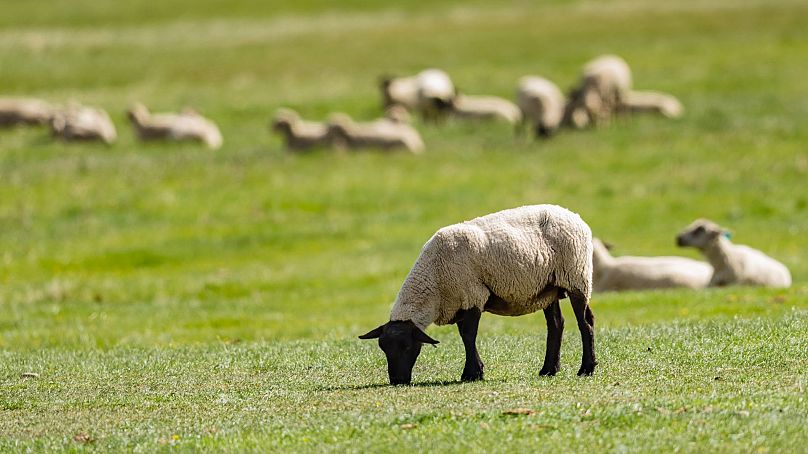Sheep’s emissions are a major cause of global warming. But these farmers think they have a solution.
In a bid to tackle climate change, British farmers are trying to breed low-methane emitting sheep.
 ADVERTISEMENT
ADVERTISEMENT
 ADVERTISEMENT
ADVERTISEMENT
When sheep fart and belch, they release methane gas. Over a 20 year period, this powerful substance is about 80 times worse powerful than carbon dioxide for trapping heat in the atmosphere, thereby causing global warming.
But farmers are turning to genetic engineering to bring these emissions down.
Building on the success of a trial in New Zealand, Hertfordshire farmers will selectively breed sheep to create a low-methane flock.
The project will help build the ‘future’ of farming, says Rob Hodgkins, a sheep breeder at Kapoi farm.
“This project is great because it demonstrates how livestock producers can be part of the solution to produce food sustainably rather than being the problem,” he says.
“It’s not the whole answer, obviously, but if we can cut methane emissions by 15 per cent without reducing productivity and do so relatively quickly and cheaply, it would go some way.”
What is the environmental impact of sheep?
Farm animals emit methane gas, a substance which is responsible for around a quarter of global heating.
In the EU, agriculture is responsible for 53 per cent of methane emissions. Another large emitter is the fossil fuel industry.
At COP26, over 100 countries signed on to a global pledge to cut methane emissions by 30 per cent by 2030.
Genetically modified sheep could be one piece of the puzzle.
Can you breed low methane producing sheep?
It’s thought that the amount of methane a sheep emits could be a heritable trait, just like size or the woolliness of an animal’s coat.
This means it could potentially be bred out.
Agricultural authorities in New Zealand have been breeding low and high emission sheep since 2008. They estimate that the low emission flock - now in its third generation - emits 16 per cent less methane.
“There is no evidence that important production traits, such as growth rates, wool production and disease resistance, are compromised in the low-emitting line,” the country’s agricultural body claims.
In 2019, the breeding information was made available to some of the country’s ram breeders. The flock in the UK trial are genetically linked to some New Zealand sheep stock who were bred for low emissions this year - indicating that it could be a success.
Precision farming experts will measure a sheep’s methane levels in a portable accumulation chamber (PAC), collecting the gas it emits over the course of one hour, breaking it down by type and analysing it.
How else can we tackle methane emissions?
Breeding isn’t the only way countries are tackling agricultural emissions.
New Zealand - which has twice as many cows and five times as many sheep as people - has proposed taxing the greenhouse gases that farm animals produce, requiring farmers to pay a levy on their animals.
On an individual level, eating a plant-based diet is a the best way to reduce methane, as breeding cows and sheep for food is a large emitter. Farming is also one of the biggest users of land and water worldwide. Eating alternative sources of protein like fake meat also helps to reduce these problems.











